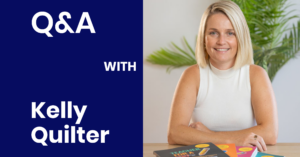For many people, interviews are a daunting experience. They feel a tremendous amount of pressure before and during the interview. Rick from Teachers’ Professional Resumes joins the ClassCover Jobs blog to provide handy interview tips that will give you the confidence you need to perform well in any school interview situation.
Research the school
Researching the school will give you some insight into what they are looking for in an applicant. This will allow you to write an attention-grabbing professional résumé as well as being better prepared for answering the questions at interview.
Write down your answers to expected interview questions
As part of predicting what the interviewer will ask you during the interview, it is recommended to write down your response to their questions. Practising your response to an interview question by doing a mock interview can help boost your confidence in an interview. Have 5-6 good “stories” or examples of achievements ready to tell. Always answer a question with a story.
Prepare for the day of the interview
As any other important day, you should be prepared at least a day before the interview. This includes knowing the most convenient route to take to the appointed address, and where you will park.
Make a good first impression
What you wear will indicate to the interviewer your level of professionalism and how serious you are at getting the job. Your clothes should be formal and conservative to give a positive impression. Always dress at least to the level of the position to which you aspire, and most importantly, dress comfortably.
Act confidently during the interview
An interviewer will assess your gestures and responses during the interview. When answering any interview question, always smile and look directly at the interviewer and where possible, use their (Christian) name. Vary your eye contact around the group, not focusing on the same person all through your response. After the interviewer is finished asking you questions, take the opportunity to ask them questions regarding the job and the school to let them know you have taken the time to research the position. Consider also leaving them with something like a sample of a program you’ve created.

ClassCover Jobs has collaborated with Teachers’ Professional Resumes to offer you tips and insights to assist you in landing your dream job.
If you need professional help in writing a teaching resume and advice in preparing for an interview, consider Teachers’ Professional Resumes to help you achieve the job position you want. Visit their website for more information.
They also offer packages and workshops – these are available at www.teachers-resumes.com.au Tel: 0411245415. Email teachers-resumes@bigpond.com.
🙌
Put your resume to work
Check out the latest job openings on ClassCover Jobs from popular search tags below




